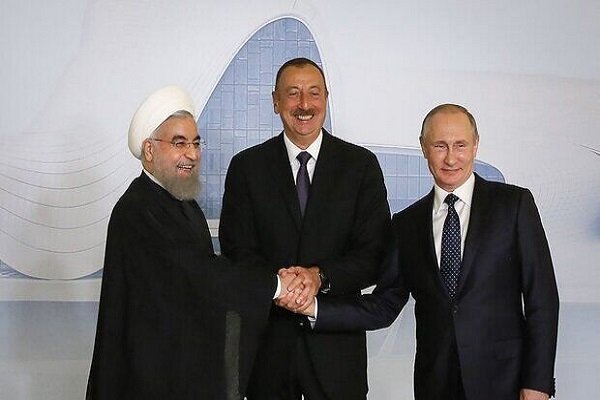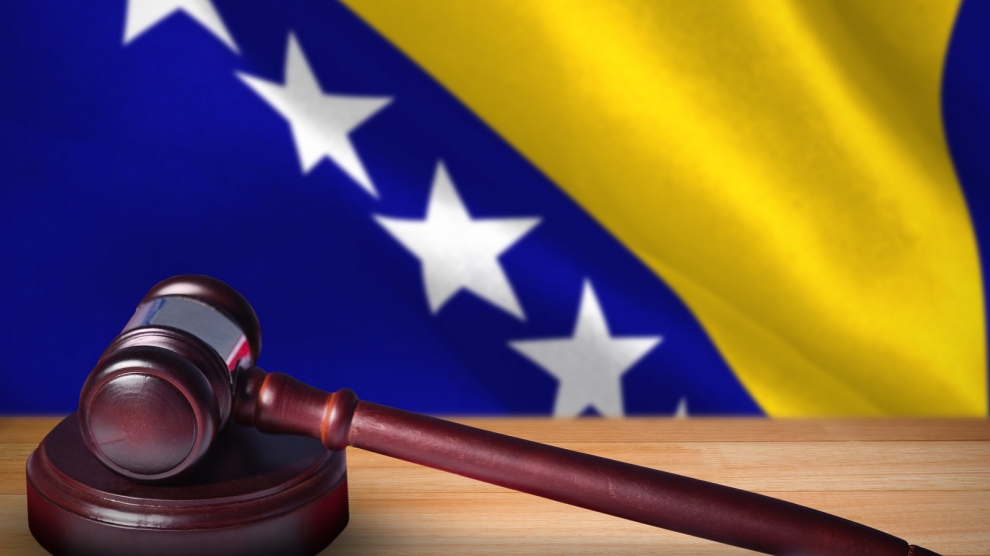EurActiv (4 October 2019)
Today, Germany’s conservative Interior Minister, Horst Seehofer (CSU), is travelling to Athens to prevent a situation like the 2015 refugee crisis from happening again. He is also using the opportunity to work on his image as a ‘problem-solver’ and is even seeking Turkey’s help. EURACTIV’s media partner Der Tagesspiegel reports.
The crossing between Turkey and Lesbos is particularly risky these days. At the beginning of autumn, violent storms, gales, hailstorms and rain showers hit the eastern Mediterranean.
Those who set off from Turkey to Lesbos, Kos or Rhodes in a rubber dinghy are in immeasurable danger, as the trip could end fatally. Nevertheless, it can be assumed that hundreds of people will again try to reach the Greek islands in mini boats from Turkey in the coming days.
And so, Seehofer of the Christian Social Union (CSU) is travelling to the region to make sure this does not go on like that. He is meeting with Greek Prime Minister Kyriakos Mitsotakis in Athens today (4 October).
Seehofer will be accompanied by his French counterpart Christoph Castaner and EU Commissioner Dimitris Avramopoulos, who still mans the migration portfolio.
“The development of migration in the Aegean deserves our increased attention,” the CSU politician said on Wednesday. He is travelling to Athens to explore “where support is possible to improve good cooperation further”.
The Greek and Turkish governments have been facing “a daunting task for years” because of continued migration.
Apparently, Seehofer wants to help them cope with these increased flows, which fits in with his new image as a ‘refugee saviour’. Recently, he surprisingly announced that he would accept every fourth migrant rescued on the route from North Africa to Southern Europe.
Since then, many, including in Seehofer’s party, have been rubbing their eyes in amazement at the interior ministry’s change of course.
Until recently, the CSU politician was considered a hardliner when it came to migration. Bavaria’s Interior Minister Joachim Herrmann (CSU), who is not known to criticise Seehofer, recently stated that one could not accept more than “a few hundred of people rescued at sea”.
As Seehofer’s trip to Athens shows, he does not want to deviate from his newfound approach. It would seem that the interior minister intends to earn a reputation as a problem-solver. He is also driven by concerns that the tense refugee situation in Greece could escalate – with far-reaching consequences for Germany.
“The year 2015 must not be repeated”, Seehofer said once again this week.
The situation in Greece is precarious. “A difficult situation”, said a spokesman of the German government a few days ago. That is because the so-called EU-Turkey deal is not working, despite the 2016 agreement that was concluded to reduce the number of refugees on the Greek islands significantly.
People from Syria who came from Turkey via the Aegean Sea, for example, were to be brought back to Turkish refugee camps. The EU has promised €6 billion to the government in Ankara as part of the deal.
Erdoğan wants to “open the gates” to Europe
Initially, the agreement led to significantly fewer refugees in Greece – from more than one million per year to around 30,000. But the numbers are now rising again.
According to UN figures, a total of 40,000 people have arrived in Greece since the start of 2019.
The camps on the Aegean islands are hopelessly overcrowded. Green politicians Luise Amtsberg and Claudia Roth in the Bundestag spoke of “inhumane conditions”. And according to the figures, only a few are sent back to Turkey because the Greek asylum authorities are not keeping up with the work.
Meanwhile, the pressure on migrants is growing in Turkey, which is another reason why many want to leave the country. Since January, the Turkish government has arrested more than 300,000 undocumented refugees and deported tens of thousands of Afghans.
President Recep Tayyip Erdoğan has complained about a lack of support from the EU. But according to the EU’s statements, it has transferred €2.6 billion to Ankara to support refugees.
However, according to the Turkish leader, this is too little and he is threatening to “open the gates to Europe”.
Strengthening the Turkey deal
Seehofer met with Turkish government representatives on Thursday evening to discuss these issues, before visiting Athens.
His delegation travelled to Turkey to promise increased support to Turkey. The aim would be “to strengthen the agreement between the European Union and Turkey. We are prepared to contribute, wherever possible. And this is something we will discuss afterwards,” he said during a brief statement before the talks started on Thursday evening.
In a visible effort to calm recent tensions, he explicitly thanked the Turkish government for its role in overcoming the refugee crisis.
“Without your solidarity, the migration problem in our region would not have been overcome,” he told his host, his Turkish colleague Süleyman Soylu.
“A very warm thank you. This is an achievement that will also go down in world history”.
“No longer to pass on responsibility”
The delegation, which also includes Migration Commissioner Dimitris Avramopoulos, wants to talk “about migration and security issues”, Seehofer said.
Soylu, on the other hand, announced that he would also discuss with his guests the so-called security zone in Northern Syria proposed by Turkish President Erdoğan.
Erdoğan wants to accommodate several million refugees there as soon as Syria is freed from “terrorist groups”. Because of the fighting in Northern Syria, Soylu also referred to the risk of increased mass flows to Turkey.
The aid organisation Medico, however, demanded that the responsibility for the refugees no longer be shifted to Turkey and Greece.
According to the organisation, a “radical rethinking of migration policy” is needed.
[Edited by Zoran Radosavljevic]
No comments yet.
- TIPTOEING AROUND THE FAR RIGHT Europe - EU 07.10.2019
- ARMENIA PRESIDENT MEETS WITH PATRIARCH OF SERBIA The Caucasus and Turkish-Armenian Relations 07.10.2019
-
 AZERBAIJAN, RUSSIA, IRAN SET TO LAUNCH ENERGY CORRIDOR
The Caucasus and Turkish-Armenian Relations
07.10.2019
AZERBAIJAN, RUSSIA, IRAN SET TO LAUNCH ENERGY CORRIDOR
The Caucasus and Turkish-Armenian Relations
07.10.2019
- WHAT IS CROATIA DOING TO BRING BACK A LOST GENERATION OF CROATS? The Balkans 07.10.2019
-
 BOSNIA’S CONSTITUTIONAL COURT ABOLISHES REPUBLIKA SRPSKA DEATH PENALTY
The Balkans
07.10.2019
BOSNIA’S CONSTITUTIONAL COURT ABOLISHES REPUBLIKA SRPSKA DEATH PENALTY
The Balkans
07.10.2019
-
25.01.2016
THE ARMENIAN QUESTION - BASIC KNOWLEDGE AND DOCUMENTATION -
12.06.2024
THE TRUTH WILL OUT -
27.03.2023
RADİKAL ERMENİ UNSURLARCA GERÇEKLEŞTİRİLEN MEZALİMLER VE VANDALİZM -
17.03.2023
PATRIOTISM PERVERTED -
23.02.2023
MEN ARE LIKE THAT -
03.02.2023
BAKÜ-TİFLİS-CEYHAN BORU HATTININ YAŞANAN TARİHİ -
16.12.2022
INTERNATIONAL SCHOLARS ON THE EVENTS OF 1915 -
07.12.2022
FAKE PHOTOS AND THE ARMENIAN PROPAGANDA -
07.12.2022
ERMENİ PROPAGANDASI VE SAHTE RESİMLER -
01.01.2022
A Letter From Japan - Strategically Mum: The Silence of the Armenians -
01.01.2022
Japonya'dan Bir Mektup - Stratejik Suskunluk: Ermenilerin Sessizliği -
03.06.2020
Anastas Mikoyan: Confessions of an Armenian Bolshevik -
08.04.2020
Sovyet Sonrası Ukrayna’da Devlet, Toplum ve Siyaset - Değişen Dinamikler, Dönüşen Kimlikler -
12.06.2018
Ermeni Sorunuyla İlgili İngiliz Belgeleri (1912-1923) - British Documents on Armenian Question (1912-1923) -
02.12.2016
Turkish-Russian Academics: A Historical Study on the Caucasus -
01.07.2016
Gürcistan'daki Müslüman Topluluklar: Azınlık Hakları, Kimlik, Siyaset -
10.03.2016
Armenian Diaspora: Diaspora, State and the Imagination of the Republic of Armenia -
24.01.2016
ERMENİ SORUNU - TEMEL BİLGİ VE BELGELER (2. BASKI)
-
AVİM Conference Hall 24.01.2023
CONFERENCE TITLED “HUNGARY’S PERSPECTIVES ON THE TURKIC WORLD"









